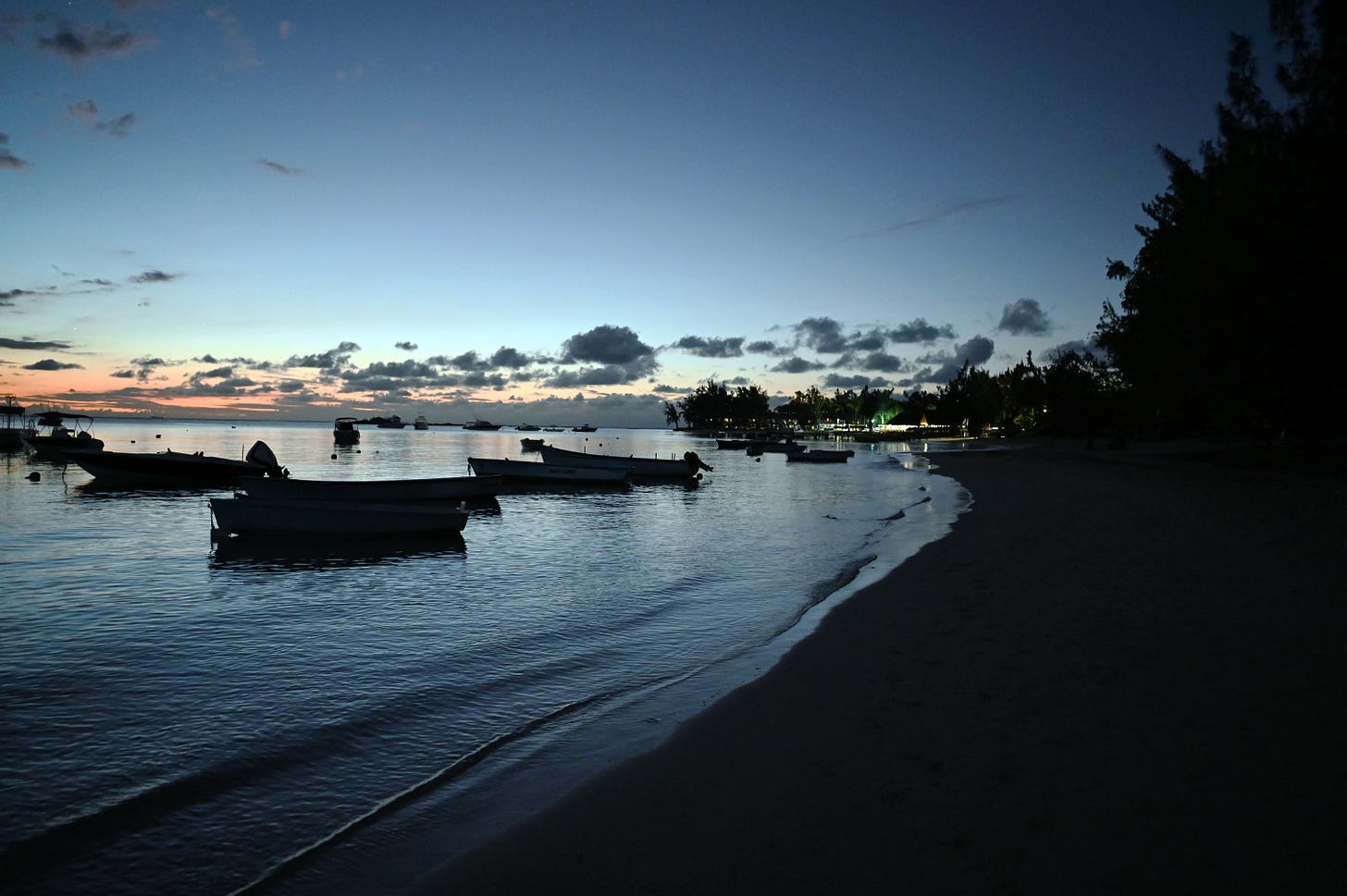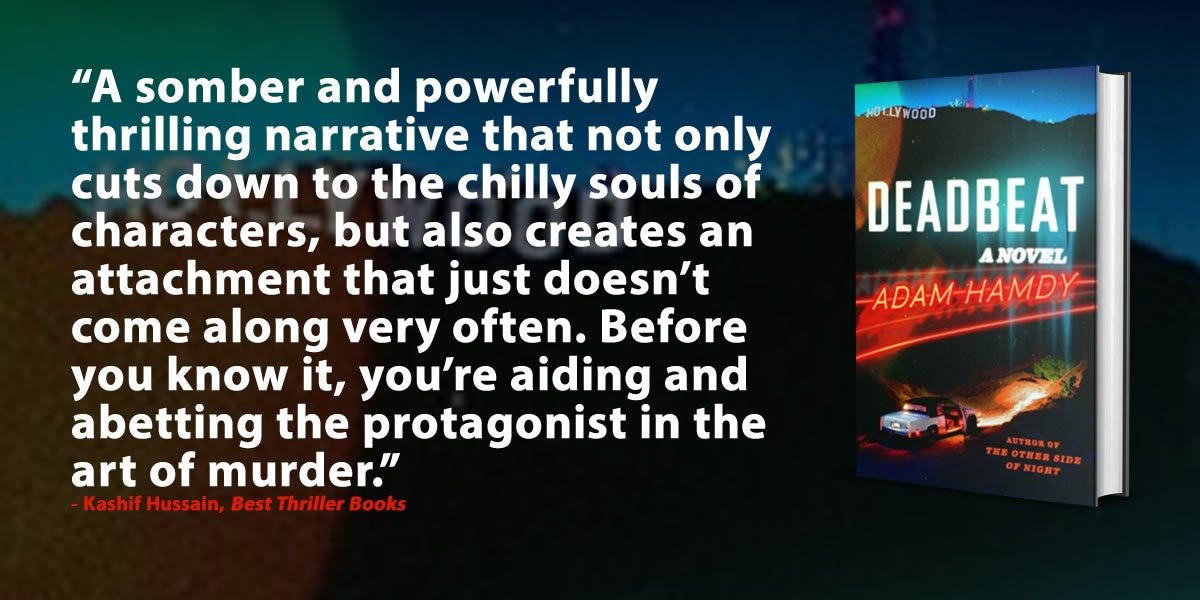Filmmaking, opportunity, and the first review of DEADBEAT
I was recently commissioned to help produce a documentary about Mauritius. The film, which focuses on young people, examines issues that are affecting teenagers and young adults everywhere. One of the issues that keeps coming up is opportunity. How do young people maximize their opportunities in an increasingly competitive world?
MON CHOISY BEACH IN MAURITIUS
Seeing the recent far-right riots in the UK and the rising anti-immigrant sentiment across the western world, I wonder whether people participating in hate politics ever stop to consider the true drivers of immigration?
Take an 18-year-old student in Mauritius considering higher education. They are faced with the prospect of studying at a local university, knowing they will be unlikely to receive the same career or life opportunities as someone who studies at a university in the west. Or they can raise the money to pay to study at a university in the west, often at a premium to domestic students. Education as a social divider not only extracts wealth from poorer countries, it also takes many of the most promising young people out of those countries, impacting their economies in the short and long term.
If the 18-year-old is from a disadvantaged background their options are even more limited, and they have little hope of ever being able to afford the $150,000 to $250,000 cost of an undergraduate degree as an international student.
In the age of the Internet, there is little excuse for making education a barrier to opportunity. A few years ago, I was commissioned to write a biopic of Aaron Swartz. For those not familiar with him, Aaron was a technology entrepreneur who became passionate about the idea of democratizing human knowledge. He wanted to make the contents of academic journals freely available so researchers around the world could build on the sum of prior research to accelerate the development of technology and medicines or to understand humans and our institutions better.
This passion and a system that is structured to be diametrically opposed to such free exchange ultimately cost Aaron dearly. Facing federal prosecution for downloading data with the intent of making it public, Aaron tragically took his own life. He left a lasting legacy of businesses and social policy initiatives, but one can only wonder about what further good he would have done if he hadn’t been tormented by a disproportionate official response.
When one analyzes the structure of academic publishing, one finds many flaws. The big journals are owned by multi-billion-dollar publishers, and charge universities and research institutions to publish papers. Peer-review is often conducted without pay for the reviewers, and the findings of research, which is often supported by public money, government grants or endowments, becomes the copyright of the journals, who charge universities and other institutions for access to those findings. Private enterprise has inserted itself into the publicly funded endeavor of human knowledge and makes sizable profits by controlling and restricting access to that knowledge.
Aaron believed human society would advance more quickly if there was a free exchange of ideas. I would argue that the same would be true if education was more freely available to everyone. There is no reason arts, business, computing and many other undergraduate degrees can’t be taught online. There are some degrees that require practical instruction, which will always have an in-person element, but law, humanities, computer science, mathematics and many other subjects can be taught at a distance.
Humanity is being robbed of the output of the math genius living in Kenya, the poet in Senegal, the computer engineer in Egypt, because their talent isn’t always being recognized or it is being recognized locally, it often isn’t being given the best opportunity to flourish.
If the western world wants to reduce the drivers of immigration, it must help create opportunity for people in low- and middle-income countries by making accessible, widely-available, high-quality education a global priority. Open up to genuine competition and encourage advancement of the west’s own development by increasing competition. Don’t rely on restricting supply to maintain a competitive advantage, and after centuries of exploiting low- and middle-income countries for their people and labor, bring that ongoing pattern of exploitation to an end.
Profit incentive means it is unlikely this will happen, but at least people can start to be more aware of the structural inequalities that hamper the development of countries who most need it. And more widely accessible education doesn’t just benefit low- and middle-income countries, it would also benefit people from underprivileged backgrounds in the west who can’t afford the rising costs of education.
Stay tuned for details of the documentary. I might upload some behind the scenes footage once production begins.
My new novel, DEADBEAT, a standalone crime thriller, was reviewed by Kashif Hassain of Best Thriller Books.
DEADBEAT will be published in December and is available for pre-order now.
This year is proving to be very busy with screen commissions. I’m working on a TV adaptation of the PEARCE novels, a crime thriller set in Mauritius and an action-packed feature.
More on all of that very soon.
Until then, I wish you and yours the very best
Adam





